Dec 14, 2022
Cité-ID reflection on the adaptive regulatory approach
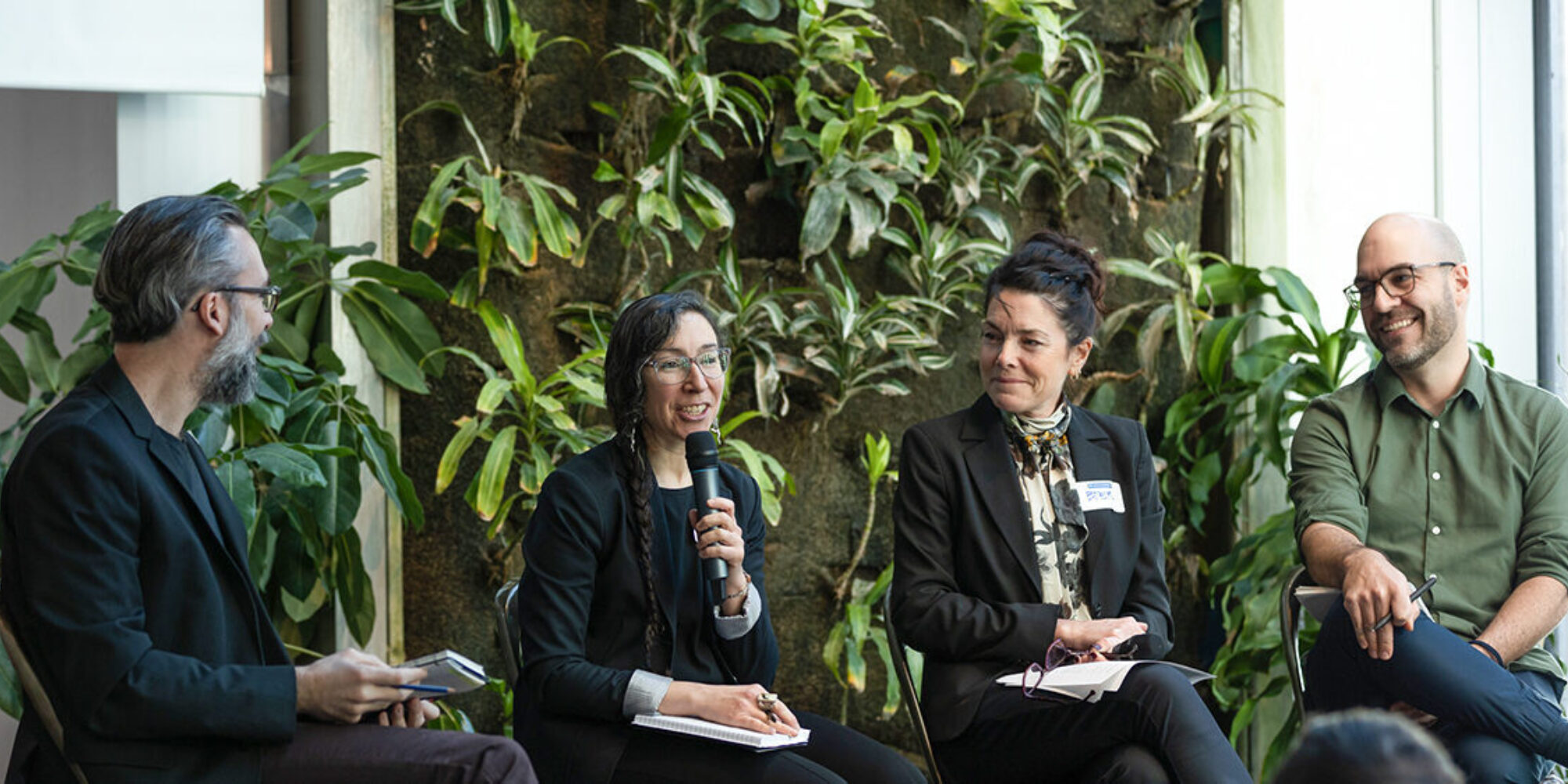
Geneviève Baril, Co-Director of Strategy and Innovation at the Cité-ID Living Lab and doctoral candidat at ÉNAP, participated in the opening panel of the event Regulatory Experimentation: A Municipal Must to Accelerate the Transition held on December 8, Day 2 of the COP15 on biodiversity and World Climate Day. Her presentation focused on the adaptive regulatory approach based on experimentation with the right to make mistakes, co-production with all stakeholders and a learning posture. The adoption of such an approach aims to support innovations in the socio-ecological transition in Montréal. Organized by the Maison de l’innovation sociale, the event allowed to share the learning achieved by the Civic Innovation Laboratory for Regulatory Experimentation ( Laboratoire d’innovation civique pour l’expérimentation réglementaire — LICER) to which Cité-ID LivingLab collaborates since its creation in 2020. Pictured from left to right: Stéphane Guidoin, strategy and innovation consultant, ...
Apr 13, 2022
Marie-Christine Therrien presents the resilience of public systems at the Cercle de la haute publique du Québec

The past two years have highlighted the importance of the resilience of public organizations and systems to ensure collective recovery in the aftermath of crises. In this regard, government departments and agencies have a dual responsibility: the organizational responsibility to be resilient in maintaining and adapting their work organization, operations and services to the public, and the societal responsibility to support the resilience of different sectors of activity, including through the development and adoption of renewed public policies, to ensure the proper functioning of the economy and society. In order to present the state of the science on resilience, Marie-Christine Therrien was invited to the Cercle de la haute fonction publique du Québec at the end of February. She then gave a lecture to more than 100 senior officials in Quebec. The conference aimed to answer the following questions. What is a resilient organization? What are the key findings and lessons learned from cr...
Feb 2, 2022
Science in municipal decision-making and solutions for municipalities in post-COVID-19 recovery

Why and how to mobilize science in municipal decision-making? What are the issues, approaches and possible solutions for municipalities facing post-COVID-19 recovery? Cité-ID and the Collaboratoire Uni-Cité answer these questions in two articles published in the new issue of the magazine Le Sablier of the Association of Directors General of Quebec Municipalities (ADGMQ). The theme of the latest issue of Le Sablier is “Science, a tool for municipal management”. These two articles highlight the essential role of municipalities in dealing with today’s major issues. Find the articles on pages 42 and 49 of the magazine.https://adgmq.qc.ca/…/la-science-outil-de-gestion…/ ...
Jan 31, 2022
Call for papers on living labs: tools for transitions
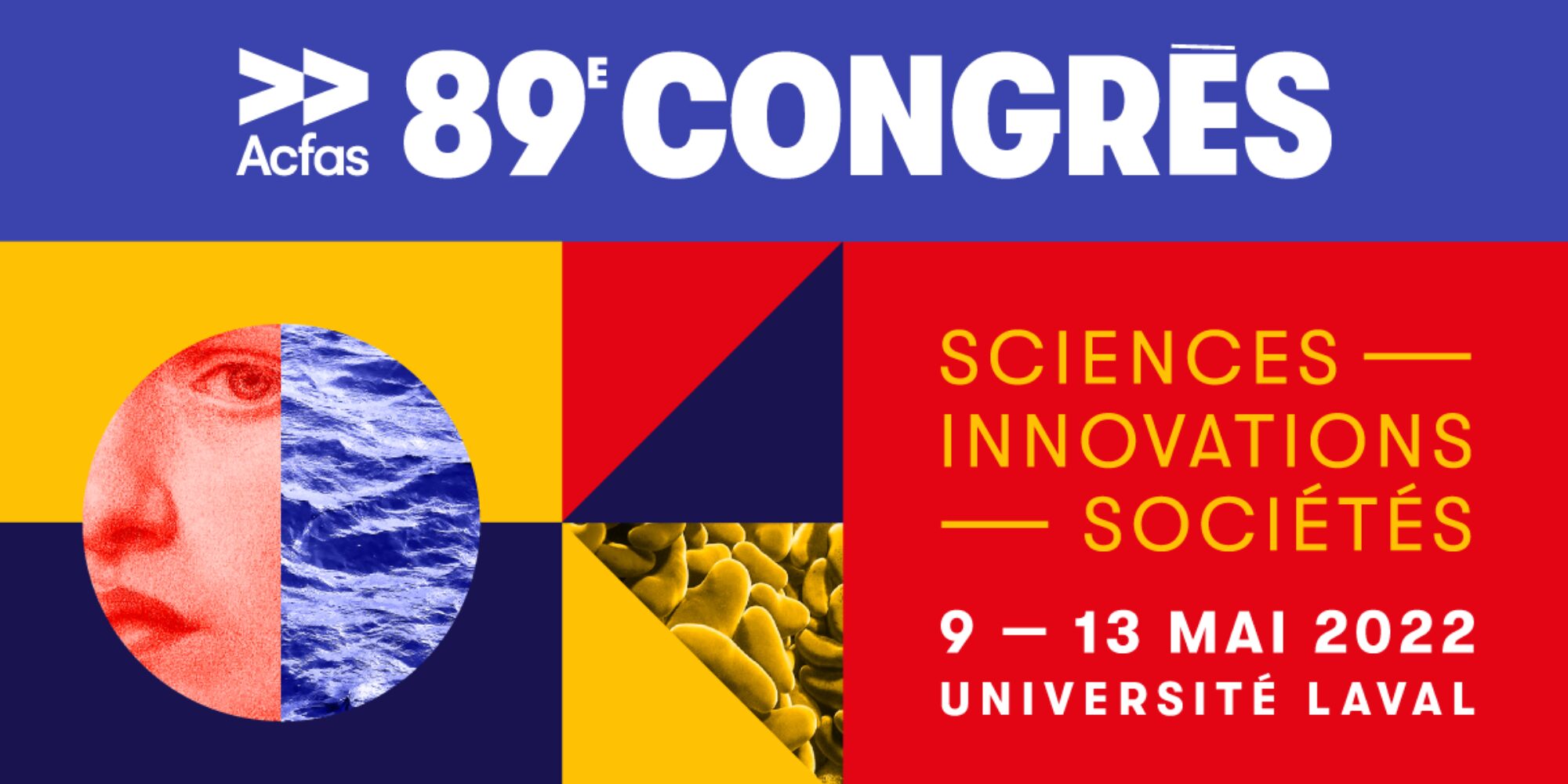
Geneviève Baril, co-director of Cité-ID, co-organizes the symposium ” Living laboratories and other labs, tools for transitions ” to discuss the relevance of living labs or other third places that integrate multi-stakeholder approaches and users’ needs at the next ACFAS congress. The objective of the symposium is to draw lessons and learnings to explore the potential of labs as tools for managing transitions towards a more sustainable and resilient future. The symposium will take place on May 11 and 12, 2021 as part of the 89th Acfas Congress. It is co-organized by Steve Joncoux, Arnaud Scaillerez, Geneviève Baril, Jacques A. De Guise, Danielle Lafontaine, David Guimont and Ann-Louise Davidson. Submit a proposal before February 10, 2022 by clicking on the link below, Colloque ACFAS 637_Appel à communication.pdf — Google Drive...
Jan 25, 2022
The richness of a doctorate in crisis management

For his PhD, Daniel Francoeur was interested in the detection of weak signals through his doctoral thesis: “Prevention and mitigation of crises based on the attribution of meaning to weak signals: the dynamic organizational capacity for detection and amplification of weak signals”. His objective: to understand how public organizations manage to detect danger signs and prevent certain crises and why certain organizations do not develop this capacity. Daniel Francoeur recounts the lessons he learned from his doctoral journey “I went looking for knowledge and also I developed a working method that allows me to be effective and efficient in complex files. » Watch this exchange between Daniel Francoeur and his thesis director, Marie-Christine Therrien, professor at ENAP and director of Cité-ID: ...
Nov 18, 2021
Recovering collectively: the case of Quebec City

To better recover from a crisis, cities must deploy exceptional measures, adopt collective approaches, break down internal silos and strengthen their coordination capacities. But how are these practices implemented and how can they be used to address other collective challenges that communities face? To answer these questions, the Cité-ID has developed a research project in collaboration with the City of Quebec. The analysis will focus on internal and external recovery processes and practices adopted in the aftermath of the Quebec City mosque attack and COVID-19. To consult the details of the research project, click here....
Nov 16, 2021
The response of digital technologies to COVID-19

The COVID-19 pandemic has accelerated the digital shift in public health information systems around the world. However, at the start of the pandemic, Quebec’s public health information systems were not prepared to respond to a crisis like this one. Problems related to the integration and interoperability of systems were highlighted. The research carried out by Cité-ID, in collaboration with OBVIA, on the use of digital tools by public health in Quebec and by regional offices has made it possible to understand the complexity of the information system of public health in Quebec and identify the technological and organizational factors that limit and facilitate the resilience of the system. Due to the weaknesses of the public health information system, several network players have mobilized their capacity for innovation and adaptation to better manage the crisis by developing new tools. The integration and consolidation of these information systems pose major challenges for the future. ...
Nov 14, 2021
Social Links and Resilience to COVID-19
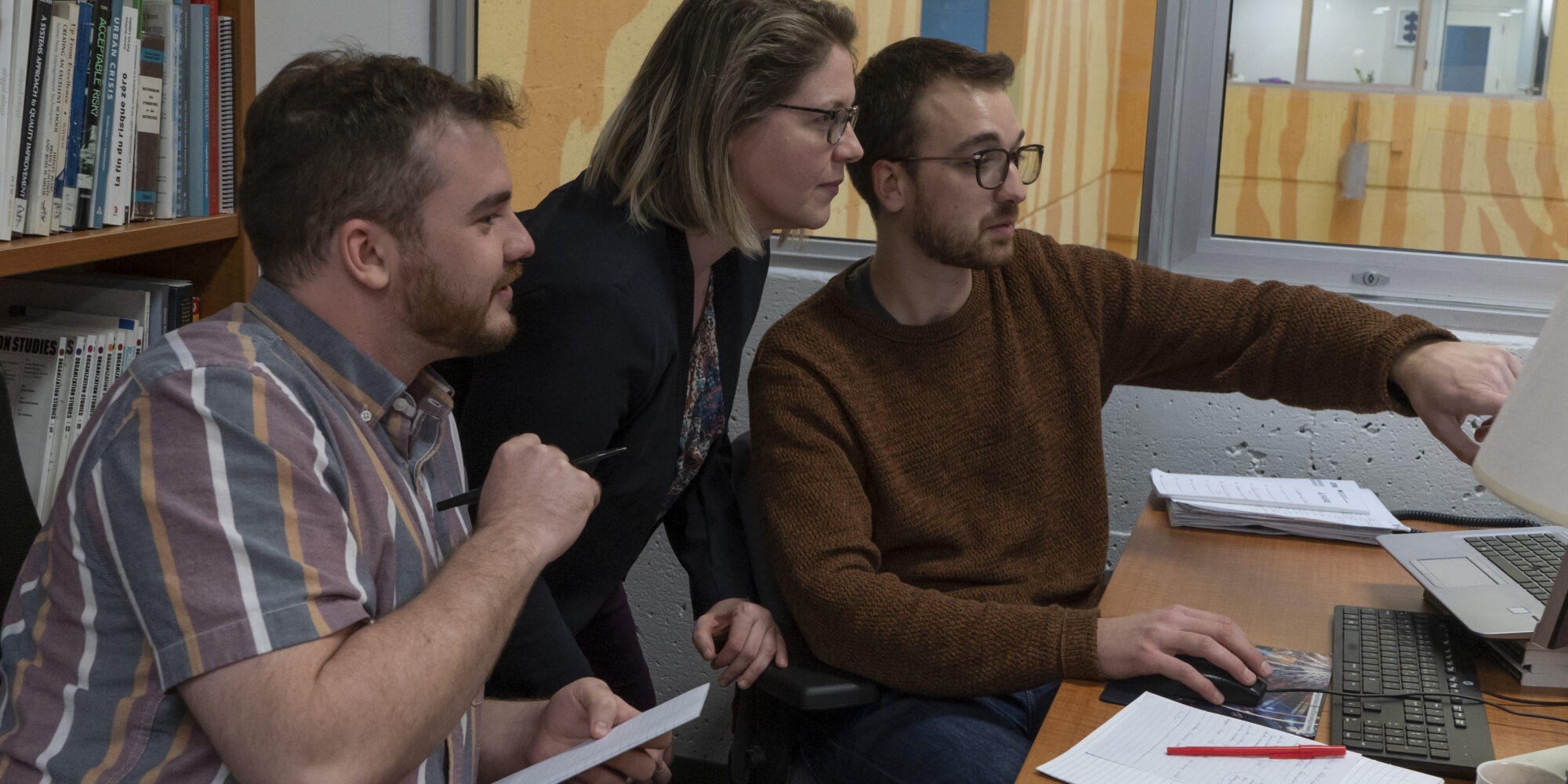
Several studies have shown that individual and collective resilience following a crisis depends to a large extent on the and the quality of individuals’ social ties. While social bonds have been weakened and transformed by the pandemic, how is it possible to preserve and strengthen? After an analysis of the effects of the pandemic on social ties in the six boroughs of Montréal, researchers from Cité-ID proposed to be more concerned with the quality of social ties in the process of collective recovery in the face of COVID-19. It is recommended to intervene to break the cycle of isolation created by the pandemic for people who already benefit from a restricted social network. Second, a strategy should be developed to avoid a decrease in social cohesion due to an increase in distrust of young adults and strangers during the pandemic. Finally, the types of social links must be strengthened in anticipation of crises, in particular by strengthening a strong and coordinated social infrastr...
Nov 10, 2021
Call for scientific contributions on city governance according to sustainable development goals
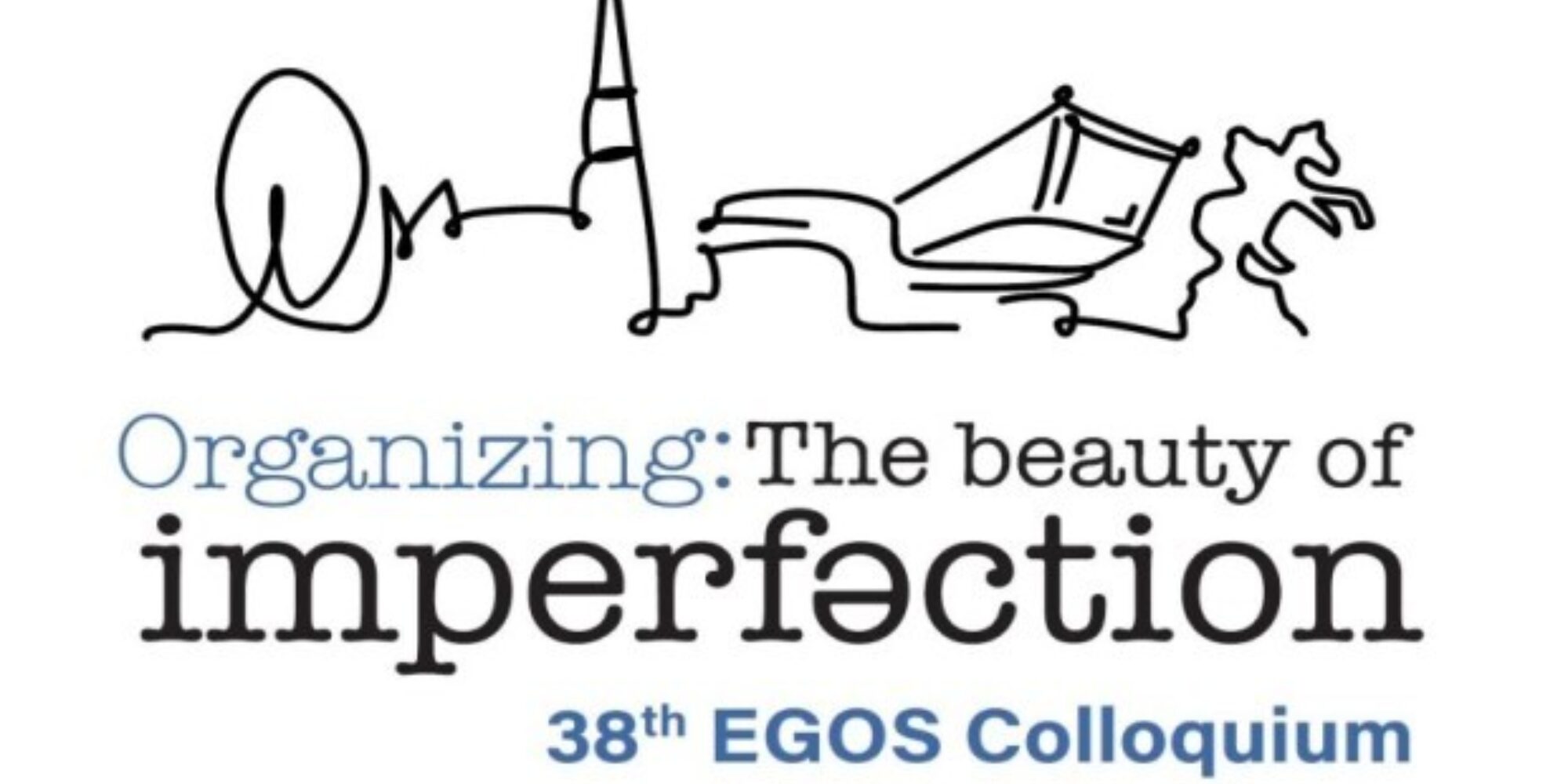
You are working on the topic of managing and organising smart and livable cities “Smart and Livable Cities”? We invite you to submit a scientific paper for the next international conference of the European Group for Organizational Studies (EGOS) by 11 January 2022. The Director of Cité-ID, Marie-Christine Therrien, co-organizes a three-day scientific panel on “Smart and Livable Cities: Sustainable Development Goals in Urban Governance and Organization” with her colleagues Karl-Heinz Pogner (Copenhagen Business School) and Gianluca Miscione (University College Dublin). The scientific conference will take place from 7 to 9 July 2022 at the 38th EGOS Symposium at the Vienna University of Economics and Buisness.For more details, click here....
Apr 14, 2021
Webinar on civil security
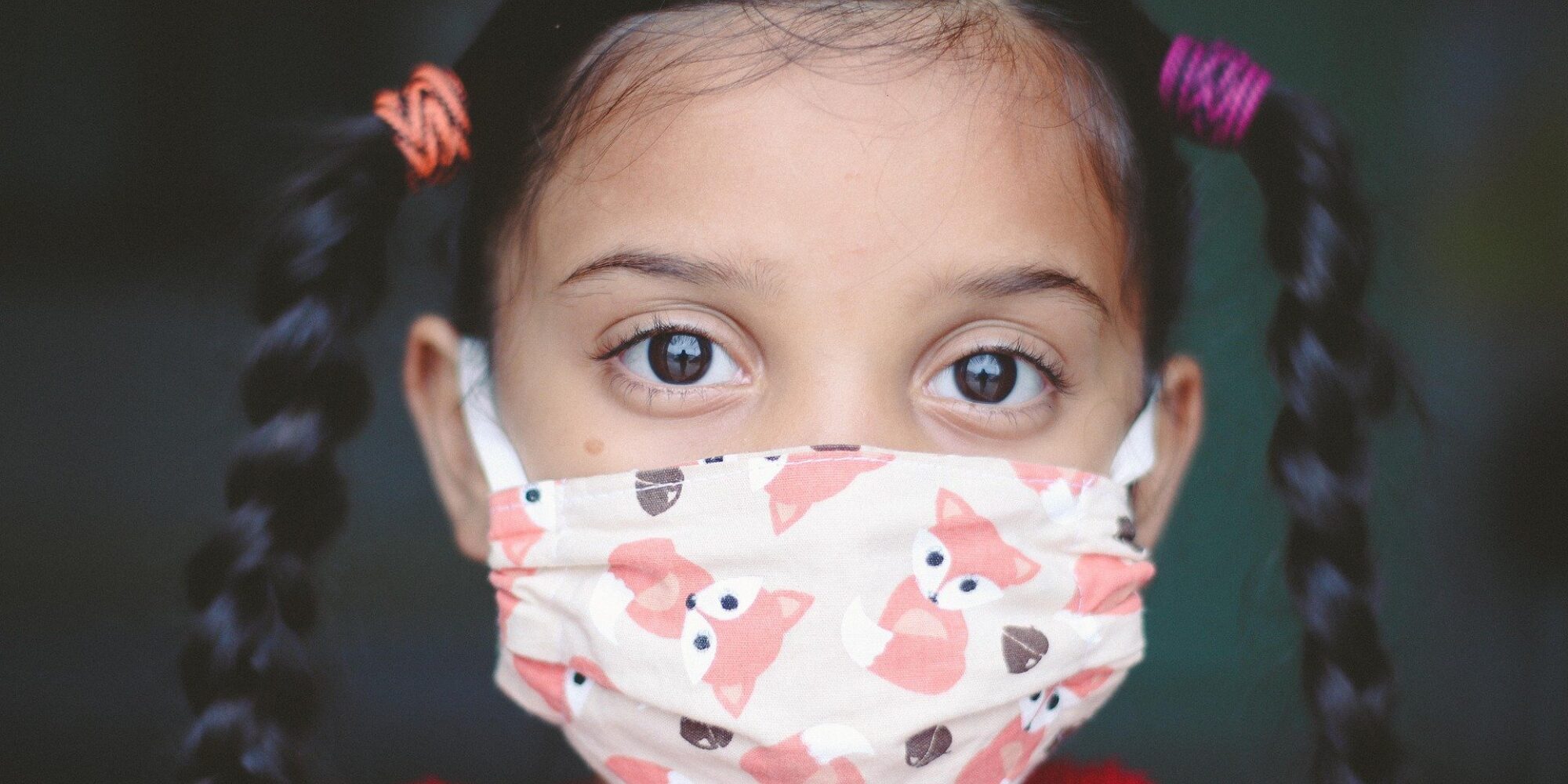
On February 10, 2021, Joris Arnaud, a researcher with Cité-ID, joined Irène Cloutier from the City of Montréal’s Office of Ecological Transition and Resilience, and Valérie Lemieux of the Montréal Regional Public Health Directorate, to offer an initial webinar on civil security in a series organized by Quebec’s Ministry of Public Security. The webinar explored challenges related to Montréal’s recovery following the Covid-19 pandemic. Joris Arnaud took the opportunity to present preliminary results from Cité-ID’s research on the links between post-crisis recovery and Montréal’s social fabric. The research, conducted in collaboration with the ASCQ and the Ministry of Public Security, looked at how the social ties of Montrealers influence individual and collective resilience in the context of the COVID-19 pandemic. Following an approach similar to research in Boston and New York City, Cité-ID’s team conducted a survey with residents of six Montréal boroughs to find out about their social...













